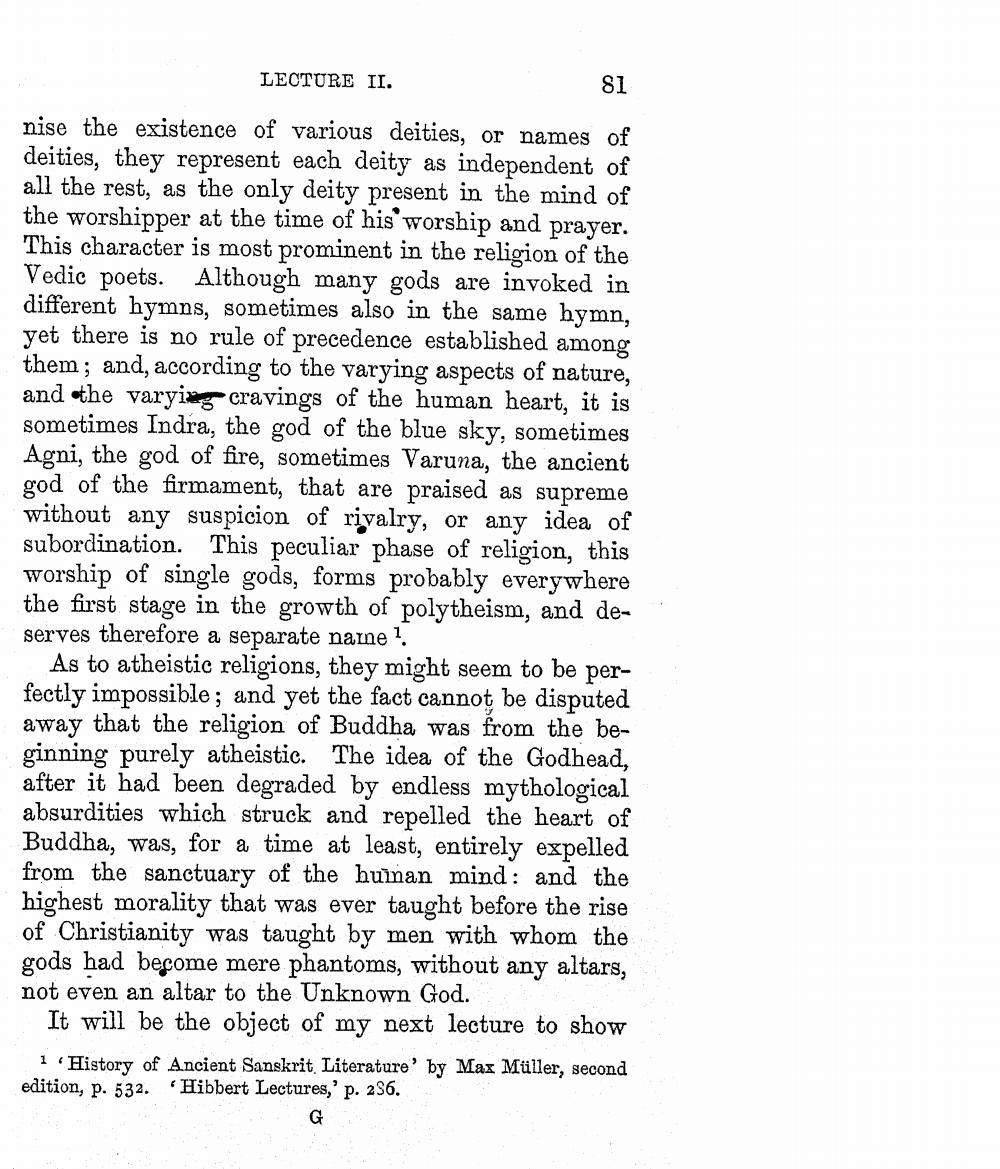________________
LECTURE II.
81
nise the existence of various deities, or names of deities, they represent each deity as independent of all the rest, as the only deity present in the mind of the worshipper at the time of his worship and prayer. This character is most prominent in the religion of the Vedic poets. Although many gods are invoked in different hymns, sometimes also in the same hymn, yet there is no rule of precedence established among them; and, according to the varying aspects of nature, and the varying cravings of the human heart, it is sometimes Indra, the god of the blue sky, sometimes Agni, the god of fire, sometimes Varuna, the ancient god of the firmament, that are praised as supreme without any suspicion of rivalry, or any idea of subordination. This peculiar phase of religion, this worship of single gods, forms probably everywhere the first stage in the growth of polytheism, and deserves therefore a separate naine?
As to atheistic religions, they might seem to be perfectly impossible; and yet the fact cannot be disputed away that the religion of Buddha was from the beginning purely atheistic. The idea of the Godhead, after it had been degraded by endless mythological absurdities which struck and repelled the heart of Buddha, was, for a time at least, entirely expelled from the sanctuary of the human mind: and the highest morality that was ever taught before the rise of Christianity was taught by men with whom the gods had become mere phantoms, without any altars, not even an altar to the Unknown God.
It will be the object of my next lecture to show 1 History of Ancient Sanskrit Literature' by Max Müller, second edition, p. 532. Hibbert Lectures,' p. 256.
G




